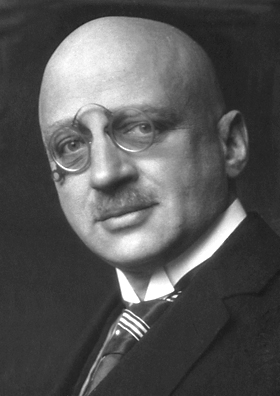Chemical warfare

Chemical warfare involves the use of toxic chemical substances as weapons. This form of warfare is distinct from the use of conventional weapons or nuclear weapons, as it relies on the toxic properties of chemical substances to inflict harm or death. Chemical warfare is considered a weapon of mass destruction and is prohibited under various international treaties.
History[edit]
The use of chemical weapons dates back to ancient times, but it was during World War I that chemical warfare was used on a large scale. The first large-scale use of chemical weapons occurred in 1915 when the German Empire released chlorine gas at the Second Battle of Ypres. This marked the beginning of a new era in warfare, where chemical agents were used to break the stalemate of trench warfare.

The development and deployment of chemical weapons during World War I were significantly advanced by scientists such as Fritz Haber, who played a crucial role in the synthesis of ammonia and the development of chemical agents like chlorine and phosgene.
After World War I, the use of chemical weapons was widely condemned, leading to the Geneva Protocol of 1925, which prohibited the use of chemical and biological weapons in warfare. Despite this, chemical weapons were used in subsequent conflicts, including the Second Italo-Ethiopian War, the Second Sino-Japanese War, and the Iran-Iraq War.
Types of Chemical Agents[edit]
Chemical agents used in warfare can be classified into several categories based on their effects:
- Nerve agents: These are highly toxic chemicals that disrupt the nervous system. Examples include sarin, VX, and tabun.
- Blister agents: Also known as vesicants, these cause severe skin, eye, and mucosal pain and irritation. Mustard gas is a well-known blister agent.
- Blood agents: These interfere with the body's ability to use oxygen. Hydrogen cyanide and cyanogen chloride are examples.
- Choking agents: These cause damage to the respiratory system. Chlorine and phosgene were used extensively during World War I.
Protection and Defense[edit]
Protection against chemical warfare involves the use of protective clothing, masks, and detection equipment. Modern military forces are equipped with advanced protective gear to shield personnel from chemical agents. Training and preparedness are crucial components of defense against chemical attacks.
International Treaties and Prohibition[edit]
The use of chemical weapons is prohibited under several international treaties, most notably the Chemical Weapons Convention (CWC), which came into force in 1997. The CWC aims to eliminate chemical weapons and prevent their use by prohibiting the development, production, acquisition, stockpiling, and transfer of chemical weapons.
Notable Incidents[edit]
Throughout history, there have been several notable incidents involving chemical warfare. During the Battle of Shanghai in 1937, Japanese forces reportedly used chemical weapons against Chinese troops. In the Iran-Iraq War, both sides used chemical weapons, with Iraq deploying mustard gas and nerve agents against Iranian forces and Kurdish civilians.
Modern Concerns[edit]
In recent years, the threat of chemical warfare has evolved with concerns over the use of chemical agents by non-state actors and terrorist groups. The Syrian Civil War has seen allegations of chemical weapon use, prompting international condemnation and calls for accountability.
Related pages[edit]
Ad. Transform your life with W8MD's Budget GLP-1 injections from $75


W8MD offers a medical weight loss program to lose weight in Philadelphia. Our physician-supervised medical weight loss provides:
- Weight loss injections in NYC (generic and brand names):
- Zepbound / Mounjaro, Wegovy / Ozempic, Saxenda
- Most insurances accepted or discounted self-pay rates. We will obtain insurance prior authorizations if needed.
- Generic GLP1 weight loss injections from $75 for the starting dose.
- Also offer prescription weight loss medications including Phentermine, Qsymia, Diethylpropion, Contrave etc.
NYC weight loss doctor appointmentsNYC weight loss doctor appointments
Start your NYC weight loss journey today at our NYC medical weight loss and Philadelphia medical weight loss clinics.
- Call 718-946-5500 to lose weight in NYC or for medical weight loss in Philadelphia 215-676-2334.
- Tags:NYC medical weight loss, Philadelphia lose weight Zepbound NYC, Budget GLP1 weight loss injections, Wegovy Philadelphia, Wegovy NYC, Philadelphia medical weight loss, Brookly weight loss and Wegovy NYC
|
WikiMD's Wellness Encyclopedia |
| Let Food Be Thy Medicine Medicine Thy Food - Hippocrates |
Medical Disclaimer: WikiMD is not a substitute for professional medical advice. The information on WikiMD is provided as an information resource only, may be incorrect, outdated or misleading, and is not to be used or relied on for any diagnostic or treatment purposes. Please consult your health care provider before making any healthcare decisions or for guidance about a specific medical condition. WikiMD expressly disclaims responsibility, and shall have no liability, for any damages, loss, injury, or liability whatsoever suffered as a result of your reliance on the information contained in this site. By visiting this site you agree to the foregoing terms and conditions, which may from time to time be changed or supplemented by WikiMD. If you do not agree to the foregoing terms and conditions, you should not enter or use this site. See full disclaimer.
Credits:Most images are courtesy of Wikimedia commons, and templates, categories Wikipedia, licensed under CC BY SA or similar.
Translate this page: - East Asian
中文,
日本,
한국어,
South Asian
हिन्दी,
தமிழ்,
తెలుగు,
Urdu,
ಕನ್ನಡ,
Southeast Asian
Indonesian,
Vietnamese,
Thai,
မြန်မာဘာသာ,
বাংলা
European
español,
Deutsch,
français,
Greek,
português do Brasil,
polski,
română,
русский,
Nederlands,
norsk,
svenska,
suomi,
Italian
Middle Eastern & African
عربى,
Turkish,
Persian,
Hebrew,
Afrikaans,
isiZulu,
Kiswahili,
Other
Bulgarian,
Hungarian,
Czech,
Swedish,
മലയാളം,
मराठी,
ਪੰਜਾਬੀ,
ગુજરાતી,
Portuguese,
Ukrainian